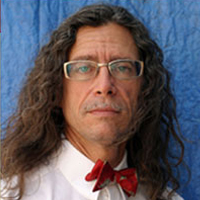


Member, Freestyle Advisory Board of Photographic Professionals
Daniel Marlos, is a Los Angeles based artist whose primary media of expression are photography, film and installation. For nearly 25 years, he has turned his cameras toward the people and architecture of Los Angeles, constructing an intimate portrait of the city through its buildings and their denizens. His latest body of work is even closer to home, focusing on his house and yard, revealing beauty through the mundane and domestic situations that surround his daily life and routines. He is currently designing the MTA bus station at Woodman for the Orange Line of rapid busses through the San Fernando Valley. Daniel teaches photography fulltime at Los Angeles City College and is an adjunct Foundation faculty member at Art Center College of Design.